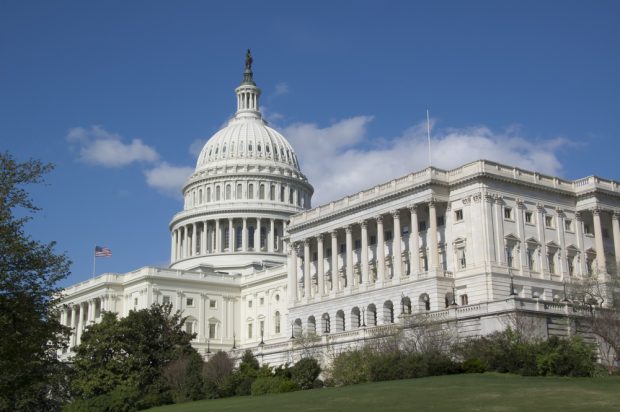 The U.S. Capitol Building.
The U.S. Capitol Building.
The House next week will consider Senate-passed regulatory overhaul legislation based on a vague promise that the Senate will take up additional changes to Dodd-Frank.
But sources on Capitol Hill and the financial community say that so far, there is no agreement on what that Senate legislation will include.
Recommended For You
"It is indeed a good question," a Senate Republican aide said, adding that the answer remains to be determined.
The Senate-passed bill, S. 2155, is far more modest than the Financial CHOICE Act, House Financial Service Chairman Jeb Hensarling's (R-Texas) plan to overhaul Dodd-Frank.
For months, the regulatory overhaul legislation remained in limbo. Senate Banking Chairman Mike Crapo (R-Id.) crafted his plan with fellow Republicans and moderate Democrats.
He insisted that the fragile coalition would not be able to find the votes needed to enact Hensarling's proposals.
And Hensarling insisted that the House would not consider the Senate bill, S. 2155, unless some House-passed provisions were added.
That would have set up a thorny House-Senate conference, since the Senate is unlikely to have the 60 votes needed to pass provisions that the House included in several regulatory overhaul bills.
For instance, Hensarling's bill includes several provisions that would drastically curtail the CFPB's powers. For example, the bill would make the agency subject to the annual appropriations process and would reduce many of the agency's powers.
The Senate has never considered such proposals since CFPB supporters, particularly Sen. Elizabeth Warren (D-Mass.) and the Banking Committee's ranking Democrat Sherrod Brown of Ohio would be able to muster up sufficient votes to block them.
In recent weeks, House Republican leaders, including Speaker Paul Ryan (R-Wis.) have softened their position, saying that the House would consider the Senate bill as long as Senate Republican leaders agreed to consider some House-passed proposals.
Hensarling has divided up his Financial CHOICE Act into several pieces and those pieces have passed the House.
For instance, last month, the House passed legislation that would make changes to the bank stress test process, as well as a bill to make changes to the Financial Stability Oversight Council. And in March, the House passed legislation that would make changes to the financial examination process, including the creation of an independent regulatory examination appeals process.
But it is unclear whether those bills will be considered by the Senate as part of the deal.
One source in the financial community said that House Republican leaders "oversold" what they might convince the Senate to consider.
However, another source said that Hensarling may put together a package of proposals that could be attached to must-pass legislation in the Senate.
The must-pass legislation could include annual appropriations bills, but the Senate consistently has refused to consider such riders in the annual funding process. And this year, Congress may pass a Continuing Resolution to fund the government past the mid-term election and then consider the annual funding decisions.
Meanwhile the House is likely to consider the S. 2155 next week. The House Rules Committee has not yet met to set the parameters for the House debate.
However, if they want to simply pass the Senate measure and send it to President Trump for his signature, the Rules Committee is likely to prohibit any amendments to be offered on the House floor.
S. 2155 contains a credit union-specific provision that provides that a one-to-four family dwelling that is not the primary residence of a member will not be considered a business loan under the Credit Union Act.
The bill also includes a provision that "provides that certain mortgage loans that are originated and retained in portfolio by an insured depository institution or an insured credit union with less than $10 billion in total consolidated assets will be deemed qualified mortgages under the Truth in Lending Act, while maintaining consumer protections," according to a summary of the bill.
The measure also would exempt depository institutions that have originated fewer than 500 open-end lines of credit and closed-end mortgages in the previous two years from certain HMDA reporting and recordkeeping requirements.
The bill also would increase the so-called "too big to fail" threshold from $50 billion in assets to $250 billion in assets and it is that provision that has gained the most opposition from consumer groups.
© Touchpoint Markets, All Rights Reserved. Request academic re-use from www.copyright.com. All other uses, submit a request to [email protected]. For more inforrmation visit Asset & Logo Licensing.






